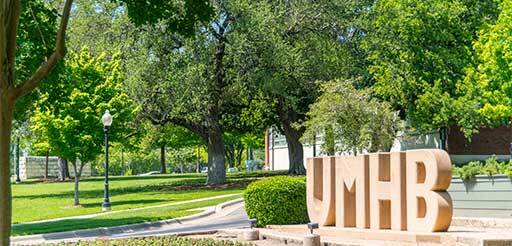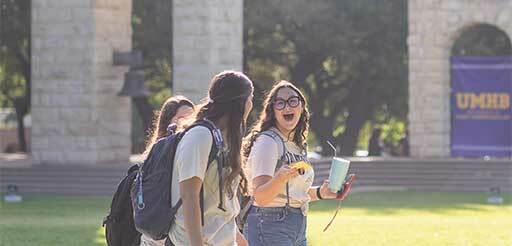Local Pastor Balances Ministry and Investigative Genealogy Work
By Lauren Turner, Reporter
Ryan Russell joined the staff at First Baptist Church of Temple in 2023 — with a master’s degree from Truett Seminary and a Doctor of Ministry in the works, he has all the right skills to be the church’s Teaching and Young Adult Pastor. And as he’s settled down as a part of the church family, a new side of his ministry has come to light: Russell also works as a genetic genealogist.
“Genetic genealogy seeks to prove the identity of individuals based on household DNA testing,” Russell explained. “Whether it's a person who has an unknown birth parent who's trying to identify who that parent is — or grandparent, that happens as well — or whether it's a law enforcement department who is trying to identify an unknown suspect that has left behind DNA at a crime scene, basically it's the practice of combining DNA results and genealogy in order to identify and find individuals.”
Russell has worked with genetic genealogy for the last nine years. His interest in the field began when he had his own experience identifying an unknown relative.
“I've been doing genealogy [for] a long time since I was probably in grad school,” Russell said. “But I started with this kind of thing probably [in] 2019 or 2020 when my dad and I had taken DNA tests on Ancestry and this woman reached out to us and she said, ‘Hey, I guess I'm related to you guys.’”
Russell worked with his father and found where the woman fit into his family. For Russell, identifying this new great-aunt opened the door to the world of genetic genealogy. He later found the show “The Genetic Detective” and was inspired yet again by the work being done in the field.
“When I watched it I said, number one that's fascinating, and number two, I feel like I did a lot of that with when this lady reached out to me and was related to us,” Russell said. “So then I really wanted to dig in a little more to figure out how this is done, and I started learning some of the strategies, methods and everything and kind of taught myself during 2020 — COVID — how to do it.”
The field of genetic genealogy is relatively young, which means there are no required degrees, certifications or forms of accreditation that are required to enter the industry. Still, Russell knew that he needed experience to gain a reputation in the field.
“There's a niche Facebook for DNA detectives,” Russell said. “It's amazing. I mean every day, people are going on there saying, ‘Can anybody help me find my birth parent?’ I just started volunteering there. That's where I got good at it and got experience and some amazing stories came out of that.”
After he gained experience through Facebook, Russell started his own company, Open Door Genetics. His company focuses on connecting families with lost or unknown relatives, but Russell also works with another side of the industry: solving crimes.
How Law Enforcement Uses Genetic Genealogy:
Genetic genealogy first made its mark on law enforcement with the case of the Golden State Killer in 2020. As stated in a case study published by Ray Wickenheiser through the National Center for Biotechnology Information, “The break in the Golden State Serial Killer case came when DNA from the crime scene deposited by the assailant was further analyzed and compared to an open source genealogical website, GEDmatch.” According to the Death Penalty Information Center, Joseph James DeAngelo Jr. was identified and pleaded guilty to the Golden State Killer’s 161 crimes — all of varying degrees and all of which took place in the 1970s and 80s.
Russell partners with United Data Connect to solve cases similar to the Golden State Killer — and while not every case makes headlines, each case is significant to those impacted by the crimes. Mitch Morrissey, co-founder of United Data Connect, explained the investigative side of the field. “We are developing leads based on genealogy and DNA in cases that have no leads,” Morrissey said.
Morrissey served as the District Attorney of Denver, Colorado from 2004 to 2017. During his time as a lawyer, he helped to lay the foundation for DNA usage in criminal settings.
“I started doing DNA work in the late 80s in Denver,” Morrissey said. “I tried the first case that went up to the Colorado Supreme Court, People v. Fishback, where they recognized that you could use DNA to identify someone in a criminal case in a courtroom.”
Morrissey has helped with the development of DNA usage in the legal realm in many ways, including admissibility hearings and solving cases himself.
“The one thing I can tell you about lawyers, [is] they don't like math and science primarily,” he said. “That's why they're lawyers. And so once you started doing this, you're pretty much stuck because no one else wanted to do it.”
Using the Combined DNA Index System, a federal database used to keep records of “DNA profiles from convicted offenders, unsolved crime scene evidence, and missing persons,” (Bureau of Justice Statistics) offenders can be found and prosecuted. However, CODIS doesn’t always find a DNA match in the system. When this happens, through programs similar to Ancestry and 23andMe, United Data Connect can use at-home DNA testing to match DNA samples from crime scenes to possible suspects or relatives of the suspect.
“The main one is called GEDmatch,” Russell said. “And GEDmatch is a website where more than a million people have uploaded their DNA voluntarily in order to find more relatives. So if you tested [on] Ancestry and I tested [on] 23andMe, we're not gonna see each other in the database even if we're related because we're in different databases, right? But if we upload to GEDmatch, then you can find people that tested at other companies. It’s like a neutral zone so to speak.”
Ancestry and 23andMe both have statements regarding their relationships with law enforcement available on their websites. Both companies make it very clear that user privacy is something they do not take lightly.
“23andMe chooses to use all practical legal and administrative resources to resist requests from law enforcement, and we do not share customer data with any public databases, or with entities that may increase the risk of law enforcement access,” the 23andMe website states. “In certain circumstances, however, 23andMe may be required by law to comply with a valid court order, subpoena, or search warrant for genetic or personal information.”
“Ancestry does not voluntarily cooperate with law enforcement,” Ancestry’s website states. “To provide our Users with the greatest protection under the law, we require all government agencies seeking access to Ancestry customers’ data to follow valid legal process and do not allow law enforcement to use Ancestry’s services to investigate crimes or to identify human remains.”
However, platforms such as GEDmatch and FamilyTreeDNA allow law enforcement to upload DNA samples to their databases and use connections to solve cases. Users of these platforms are presented with the option to opt in or out of law enforcement access when they sign up for their accounts.
“This is kind of a big debate in the industry because a lot of people don't want their DNA results being utilized in any way that they're not comfortable with so they opt out, but a lot of people do opt-in,” Russell said.
“So when the police take that blood from the crime scene [and] take it to the lab, they upload it to GEDmatch PRO — which is just an offshoot of GEDmatch — and everybody that is opted in and the database can be compared to the suspects, and that creates a list of the relatives of that person,” Russell explained. “From there it’s the same process like it would be in Ancestry. It's like, ‘Okay, we have a list of relatives. Let's figure out who are who are the common ancestors and work from there.’”
Russell noted that cases involving criminal matters are always in conversation with the law enforcement unit assigned to the crime. “We're always working through police and so at the end of the day, it's their decision whether we can contact certain individuals because they don't want to compromise the case,” he said. “So the police kind of are the gatekeepers for deciding who we’re allowed to talk to and how they're approached.”
If the police have a solid lead on a suspect found through genetic genealogy, they can finalize their findings through a relative’s DNA or get a live DNA sample from the suspect without them knowing. Once the right match is found, a warrant for the arrest of the offender can be processed.
The Good of Genetic Genealogy:
Aside from convicting those responsible for previously unidentified crimes, Morrissey pointed out a different side of genetic genealogy. “The other thing that it does is it exonerates people that maybe the family thought were responsible,” Morrissey said. “Say an ex-boyfriend, a husband — the entire community sometimes thinks that, ‘Oh, you know, this guy got away with murder,’ and what we do is exonerate those people by finding the real person.”
“One of the cases that we saw was an old 1963 case. I got a call from a gentleman. He said, ‘You exonerated my grandfather.’ And he explained that for years, he was always considered the principal suspect in this case,” Morrissey said. “Oftentimes these guys have taken two or three polygraphs and they lost their jobs and things like that because they've always been a suspect. So, you know, that's another important thing that it does, is that it exonerates those people that there's a segment of [their] community or of a family that think they're responsible for this murder.”
Russell has also seen the good work that genetic genealogy is doing, and it pairs perfectly with his work in ministry.
“I see the connection as, God has a plan for the world and how he wants things to go and everyone can see that,” Russell said. “That plan is very often not realized, right? I see the church and genetic genealogy as having the same common goal, as trying to make the world more like the way God wanted it to be — to restore things back to his intentions. And so I see the pursuit of justice as something that the church should believe in and be a part of. And it’s complementary, I think, to the mission of the church.”
Morrissey emphasized that the work being done by United Data Connect relies on a network of people, and Russell is one of those who makes a difference.
“I think it's important that somebody like Ryan would step up and help us because he’s doing it as a volunteer, and I think [he’s] doing it because he believes in the work that we do. We never give up on these cases, you know?” Morrissey said. “Ryan’s truly doing it because he believes in what we're doing and he knows it makes a difference.”
And Russell extends the network of support for this work even further through relying on the faith, prayer and petition of those in his congregation.
“I have on my prayer list that I send out to our prayer team every week ... please pray for a murder case in Aurora, Colorado that I'm trying to solve through genetic genealogy,” Russell said. “And sometimes I wonder if people are like, ‘What?’ But I think we ought to be praying for that. I think this family that's been affected wants justice and wants closure over this awful death that's happened in their family. So to me, these things aren't really that mismatched or different.”




